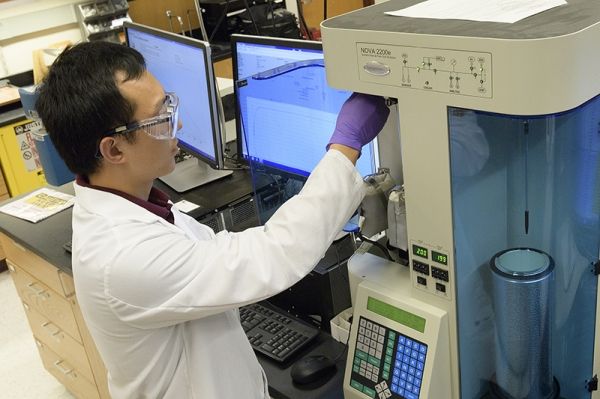Most of today's batteries are made up of rare lithium mined from the mountains of South America. If the world depletes this source, then battery production could stagnate.
Sodium is a very cheap and earth-abundant alternative to using lithium-ion batteries that is also known to turn purple and combust if exposed to water – even just water in the air.
Worldwide efforts to make sodium-ion batteries just as functional as lithium-ion batteries have long since controlled sodium’s tendency to explode, but not yet resolved how to prevent sodium-ions from “getting lost” during the first few times a battery charges and discharges. Now, Purdue University researchers made a sodium powder version that fixes this problem and holds a charge properly.
“Adding fabricated sodium powder during electrode processing requires only slight modifications to the battery production process,” said Vilas Pol, Purdue associate professor of chemical engineering. “This is one potential way to progress sodium-ion battery technology to the industry.”
Read more at Purdue University
Image: Purdue researcher Jialiang Tang helped resolve charging issues in sodium-ion batteries that have prevented the technology from advancing to industry testing and use. CREDIT: Purdue University Marketing and Media photo


